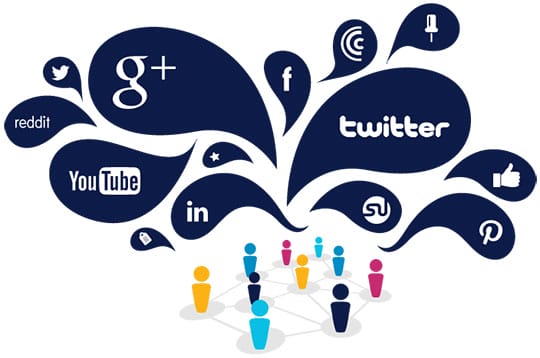As you know, there’s an art to driving conversions. But did you know there’s also a science to it? When it comes to digital marketing, leveraging the power of social proof and the influence it has over the human brain can be particularly profitable.
The Psychology of Social Proof
“While we’d like to think our actions are always determined by our own individualistic thinking, the truth is that our final decision making is often conditioned by those around us,” explained by Wikipedia. “This notion is especially prominent in situations where people are unable to determine the appropriate mode of behavior, and is driven by the assumption that surrounding people possess more knowledge about the situation.”
This is the essence of social proof. By our very nature, we are hesitant to make choices and are always looking for proof that we’re doing the right thing. When people we trust make choices, we naturally assume they are right.

Four Popular Techniques
While social proof tends to happen naturally, there are also ways for savvy brands and marketers to tap into the fundamental principles of social proof and drive conversions. Let’s check out some of the top techniques and discuss ways you can leverage them in your own business.
1. User Reviews and Ratings
 Think about yourself for a moment. When you go to buy a product online – whether it’s from Amazon or a smaller niche site – what’s one of the first things you do? Most people read the reviews and check out the ratings. The logic for doing this is that you can see what people like and dislike about the product before making a final decision. This is social proof in action.
Think about yourself for a moment. When you go to buy a product online – whether it’s from Amazon or a smaller niche site – what’s one of the first things you do? Most people read the reviews and check out the ratings. The logic for doing this is that you can see what people like and dislike about the product before making a final decision. This is social proof in action.
From a marketing point of view, you should be using some sort of reviews and rating system. This Trip.com landing page for Chicago hotels is the perfect example. Notice how each listing includes a star rating, number of reviews, and a quote from one of the testimonials. These small details lead to much greater click-through and conversion rates.
2. Numbers and Statistics
 The human brain loves numbers and statistics. They’re perceived as being more objective and trustworthy than written word. Thus, if you’re trying to increase trust with your customers and lead through to a specific conversion objective, numbers and statistics should be leveraged.
The human brain loves numbers and statistics. They’re perceived as being more objective and trustworthy than written word. Thus, if you’re trying to increase trust with your customers and lead through to a specific conversion objective, numbers and statistics should be leveraged.
This is something Basecamp does particularly well. On the Basecamp homepage, you’ll see a bunch of different references to numbers and stats. For example, at the bottom of the page, they provide a chart that shows how many accounts they’ve signed up over the years (more than 2.1 million).
3. Celebrity Endorsements
 If you have the connections and/or budgetary flexibility, celebrity endorsements present another valuable opportunity for social proof. When people see a name that they recognize – such as an athlete, movie star, or musician – they’re much more apt to pay attention. Signing on a celebrity to endorse your products can provide access to an entirely new customer segment.
If you have the connections and/or budgetary flexibility, celebrity endorsements present another valuable opportunity for social proof. When people see a name that they recognize – such as an athlete, movie star, or musician – they’re much more apt to pay attention. Signing on a celebrity to endorse your products can provide access to an entirely new customer segment.
4. Media Mentions
 While personal endorsements from average customers and celebrities go a long way, there’s also some value in “flexing your muscles,” so to speak. In other words, if you have a big-time customer or client, you should ask for their permission to divulge this relationship in the form of a media mention.
While personal endorsements from average customers and celebrities go a long way, there’s also some value in “flexing your muscles,” so to speak. In other words, if you have a big-time customer or client, you should ask for their permission to divulge this relationship in the form of a media mention.
One of the most popular techniques is to include the client’s logo on your homepage with a statement that reads, “Trusted by XYZ Company.” If your company has been featured in a popular media outlet, you can also use this to your advantage by saying something like, “As Featured on Forbes.com” or “As Seen in Walmart.” Little things like this instill trust in your audience and give you a slight advantage over the competition.
Persuasion and Conversions

As you know by now, there’s a close correlation between persuasion and conversions. Some buying decisions happen independently of persuasion. For example, you don’t need anyone to persuade you to buy bread, milk, or gas for your vehicle. You need all these things, and prices tend to all land within the same range. But when it comes to non-essential products, persuasion plays a direct role in conversion rates.
For marketers that work with products and services that are considered non-essential, it’s wise to look into social proof and the ways in which you can use it to your advantage.
From reviews and ratings to celebrity endorsements, the options are limitless.



